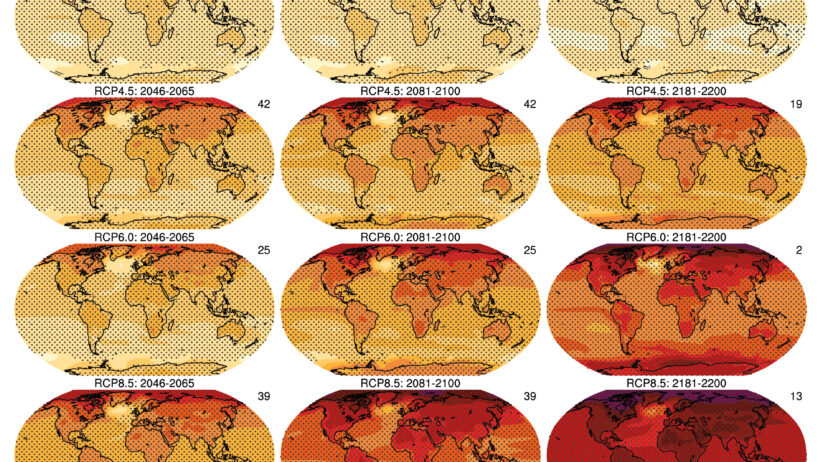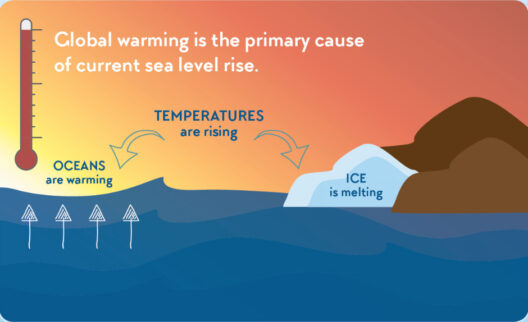Can humans survive climate change? This seemingly innocuous query serves not merely as an inquiry into the future of our species but as a precipice from which we must contemplate our role on this planet. As the specter of climate change looms larger with each passing year, we are faced with increasingly dire forecasts. Can we really adapt? Or has the die already been cast? In grappling with these questions, we must delve into the myriad ways climate change could reshape our existence.
The current trajectory of anthropogenic climate change indicates that the consequences will be both pervasive and profound. From rising sea levels and more frequent extreme weather events to the inexorable loss of biodiversity, the planet is undergoing transformations that will challenge fundamental aspects of human life. While it is easy to adopt a fatalistic perspective, it is also critical to analyze if and how humanity can respond to the impending challenges.
One pivotal element of our survival hinges upon technological adaptation. In recent decades, humanity has demonstrated an astonishing aptitude for innovation. Renewable energy technologies, such as solar and wind power, have matured significantly. They present a tantalizing antidote to our historically carbon-intensive way of life. Embracing these technologies could offer sustainable alternatives that mitigate further climate degradation. This transition is not merely a utopian dream; it is feasible within our current resource capabilities. However, the scale and speed of this transition will determine its success.
Equally important is the role of policy in shaping our future. Effective governance and international cooperation are paramount in combating climate change. The Paris Agreement, for example, embodies a collective effort, yet its efficacy remains in question based on the commitment of individual nations. The challenge lies not merely in agreeing to limits on emissions but in enforcing them rigorously and transparently. Moreover, wealthy nations bear a moral obligation to support developing nations in their adaptation efforts. This becomes vital, as the capacity to cope varies drastically across the globe. Consequently, equitable resource allocation can mean the difference between survival and annihilation for vulnerable communities.
On a local level, grassroots movements, fueled by ordinary citizens, have begun to challenge complacency and demand action. These community-driven initiatives are essential in fostering resilience. Urban adaptation strategies, such as designing cities to cope with intensified heat and flooding, are essential elements in our survival toolkit. Yet, the question remains: will these efforts be sufficient? It is crucial that the ethos of sustainable living transcends local initiatives and coalesces into a global movement. Only through collective responsibility can we hope to ensure that all humans have a fighting chance against the ravages of climate change.
However, despite our technological prowess and civic engagement, we must confront the daunting reality of climate feedback loops. As the planet warms, processes such as thawing permafrost release greenhouse gases that further exacerbate the crisis. This raises an uncomfortable possibility: could humanity’s survival ultimately hinge on our ability to manage these complex and often unpredictable feedbacks? Failure to do so could render even our most innovative technologies impotent in the face of an inhospitable planet.
The challenge also extends to our ecological systems, which are inextricably intertwined with human existence. The loss of biodiversity poses a significant existential threat. Ecosystems are not merely static backdrops; they are dynamic entities that provide essential services. From pollination to carbon sequestration, the intricate tapestry of life supports our very survival. Once lost, this biodiversity cannot be easily restored. Therefore, addressing climate change must go hand in hand with robust conservation efforts. The future of our species will depend heavily on our ability to protect these natural systems from undue stress.
Socioeconomic disparities further complicate the narrative of survival. Vulnerable populations who are least responsible for climate change often suffer the most acute consequences. This raises ethical questions about our collective responsibility. Should wealthier nations foot the bill for adaptation strategies? Or should affected communities be empowered to devise their own solutions? The dynamics of privilege and power must be acknowledged in order to construct a truly resilient society capable of weathering climate change.
Perhaps one of the most pressing queries we need to address is whether we possess the willpower to change our ways. Humans are notoriously resistant to change, often embroiled in the inertia of their habits and lifestyles. The challenge lies not in a lack of knowledge or resources but in mobilizing this information into widespread behavioral shifts. Education plays a pivotal role, yet it is not sufficient on its own. We must cultivate a sense of urgency— a recognition that the time to act is not tomorrow, but now.
In contemplating the future of our species in the face of climate change, we scratch the surface of an intricate web of interdependencies. Technological innovation, governmental policy, ecological preservation, socio-economic equity, and individual responsibility weave together to form a complex narrative about our survival. The question now stands: can we harness these elements collectively to ensure a livable future? The answer will not be a static affirmation or denial but rather a dynamic journey steeped in choices made today. As stewards of this planet, the onus rests upon us to strive for a sustainable existence, transforming our perilous predicament into an avenue for resilience and renewal.








